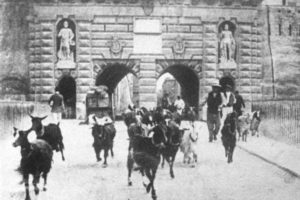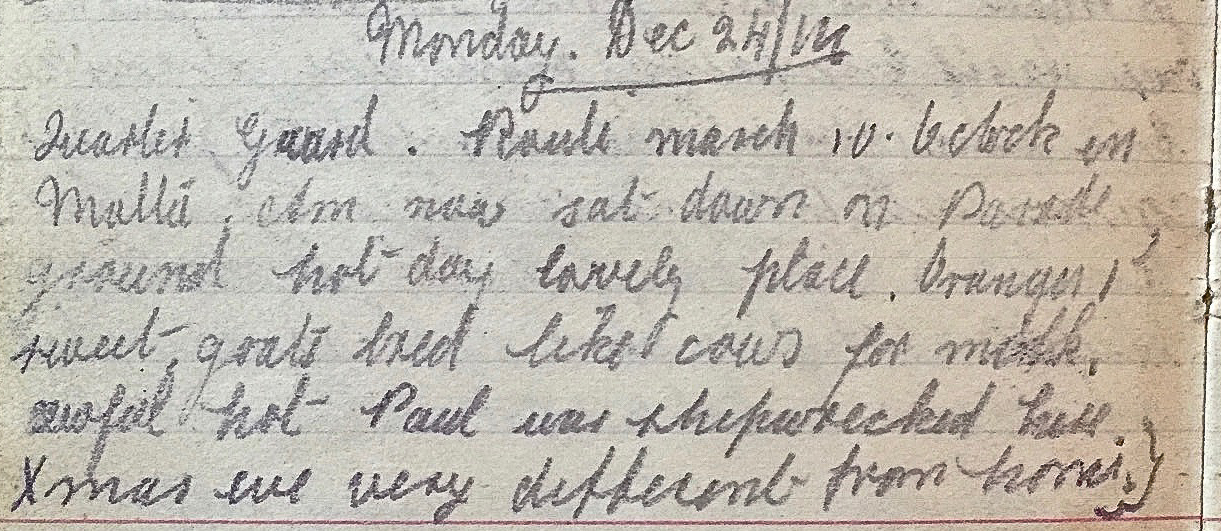Monday, Dec 24th, 1917
Quarter guard. Route march 10 o’clock in Malta. Am now sat down on parade ground, hot day, lovely place. Oranges are sweet. Goats are bred like cows for milk. Awful hot. Paul was shipwrecked here. Xmas will be very different from home. Returned to rest on floor. Cold water, biscuits and bully for supper. Funny Xmas. Officers drunk and singing.
A Disciple on Malta
Frank is correct that St Paul was shipwrecked on Malta. In fact the Church of Malta has status as an Apostolic See because St Paul is recognized as its founder.¹. I wonder what Frank, the Salvationist, would have thought of the church as described by Lena Ashwell earlier that year:
‘Next day there is a great festival. At St. Paul’s Cathedral the floor is strewn with evergreens, and all the silver altars are uncovered. Candlesticks, images, and vases glitter against the purple hangings. It is the day on which St. Paul was shipwrecked. If he were to be landed here again, I wonder what he would say to the glitter and magnificence, the fat priests, and the ragged peasants who put their savings into this pomp. When the Pope visited Malta last, he said one of the churches was too rich, and fined them £2000, which they paid right away.’
Taking the Goat

In our modern world of artisanal cheeses and speciality milks, most of us would know about goats being kept for their milk. The noteworthiness of this to Frank provides a glimpse of one of the more pleasant of his new experiences.
Lena Ashwell also noted ‘In the streets are flocks of goats, driven from door to door and milked on the premises.’³ Miss Ashwell was the driving force behind the establishment of professional concert parties for the troops.
Poor food again
Frank was clearly unhappy about his Christmas fare. Huntly & Palmer, on contract to the Army, made the dry biscuits. Apparently one could break a tooth if it wasn’t dunked in tea or water first.
‘Bully’ was the troops’ nickname for tinned corned beef that was a staple of the soldier’s rations. There is some dispute about the origin of the word ‘bully’. Favourite hypotheses are either because of the image of a bull on the tin can or as a corruption of the French word ‘bouilli’ meaning boiled.²
References & further reading
¹ ‘Apostolic See’ in Wikipedia
² ‘Tommy, Doughboy, Fritz – Soldier slang of WWI’ by Emily Brewer
³ Ashwell, Lena, 1871-1957. ‘Modern troubadours, a record of the concerts at the front’ (Kindle Locations 1252-1253 & 1280-1284). London, Gyldendal.
* Old photo of Valletta, Malta (image may be subject to copyright)


